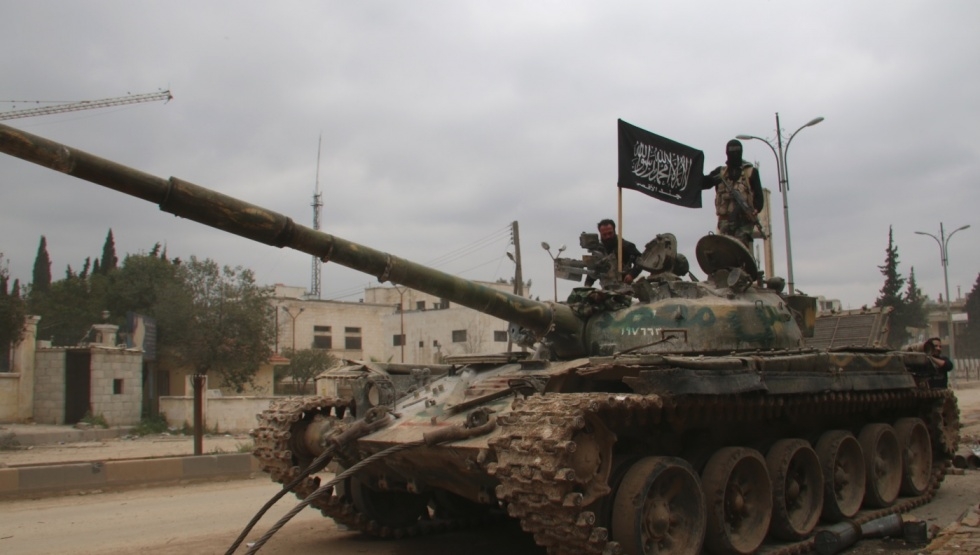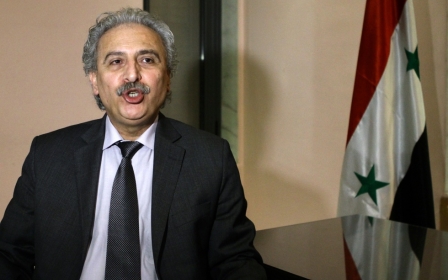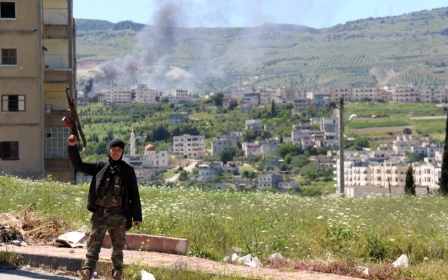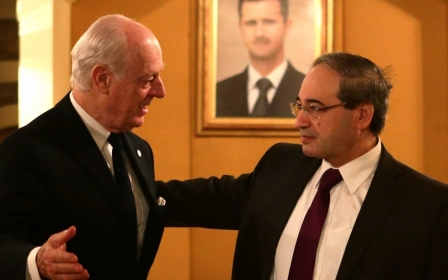'Army of Conquest' rebel alliance pressures Syria's Assad

A new rebel alliance calling itself the Army of Conquest has seized key positions in Syria's northwestern province of Idlib in recent weeks, including the provincial capital.
Here are answers to some key questions about the coalition, known as Jaish al-Fatah in Arabic, and the consequences of its recent gains:
Q: What is the Army of Conquest?
A: The coalition, whose formation was announced in March, comprises a range of militant groups, including powerful Islamist Ahrar al-Sham and Al-Qaeda affiliate Al-Nusra Front.
Other important members include Faylaq al-Sham, a coalition of Muslim Brotherhood-linked battalions, and Jund al-Aqsa, a small militant group.
But the coalition has cooperated with "moderate" or secular rebel groups, including Fursan al-Haq, which previously received US weapons.
In some battles, particularly in the northern province of Hama, more moderate groups have led the way.
Q: Where has it seized territory?
A: Since March, the Army of Conquest has seized several key positions in Idlib province, including the provincial capital.
That capture on 28 March made the city only the second provincial capital to fall from the control of the government of President Bashar al-Assad, after Raqa.
On Saturday the alliance took the strategic town of Jisr al-Shughur, opening the way for attacks on government strongholds in the neighbouring provinces of Latakia and Hama.
And on Monday, it captured Idlib's Al-Qarmid military base, leaving the government with only a few remaining positions in the province.
In tandem, more moderate forces have taken several villages in northern Hama, capitalising on the pressure the regime is under in Idlib.
Q: Who backs the alliance?
A: Groups in the Army of Conquest are backed by a range of foreign powers, including Qatar, Saudi Arabia and Turkey.
The range of regional backers has created speculation that the coalition is the result of a recent detente between Qatar, Saudi Arabia and Turkey.
But analysts say it is unclear whether that is the key driving factor behind the grouping, noting that similar coalitions with divergent ideologies have formed elsewhere in the country throughout the war.
Al-Nusra Front is designated a "terrorist" group by the United States, already having driven several US-backed rebel groups out of Idlib this year.
But it now cooperates with groups that were once vetted by Washington.
Q: What's behind its successes?
A: The alliance's relatively speedy advances in Idlib are partly the result of improved rebel coordination, according to Noah Bonsey, the International Crisis Group's senior Syria analyst.
"But the more important strategic story is the cumulative toll of the regime's manpower problem at this stage in the conflict. It simply cannot replace the manpower it loses," he said.
Idlib, which lies on the border with Turkey and far from the capital, may also not be a priority for key Assad allies like Lebanon's Hezbollah movement, which has bolstered government troops elsewhere in the country.
"You can expect a more effective regime defence in areas that they consider more strategically important, like Damascus," he said.
Q: What next?
A: The Army of Conquest is likely to continue its focus on Idlib, targeting the few remaining military bases and towns under government control in a bid to rout the regime from the province.
The rebels have also already advanced in Hama province, and could use Jisr al-Shughur to launch attacks on Assad's coastal bastion in Latakia province.
In Idlib city, the rebel groups have so far shared administration.
For the government, the recent losses are serious but not necessarily fatal, according to Syria expert Thomas Pierret, a professor at the University of Edinburgh.
It "is in a position of weakness (but) that doesn't mean it's going to fall tomorrow necessarily."
"In 2012, the regime survived despite experiencing greater disasters."
New MEE newsletter: Jerusalem Dispatch
Sign up to get the latest insights and analysis on Israel-Palestine, alongside Turkey Unpacked and other MEE newsletters
Middle East Eye delivers independent and unrivalled coverage and analysis of the Middle East, North Africa and beyond. To learn more about republishing this content and the associated fees, please fill out this form. More about MEE can be found here.




